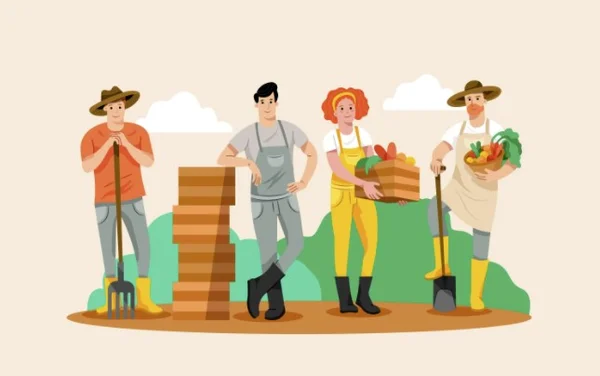
Proposal for an Erasmus + for young farmers
The difficulties in attracting young people to become farmers is a challenge across Europe. This is reflected in the proposal of the European Commission on the Common Agricultural Policy (CAP) beyond 2020 in which generational renewal is one of the nine clear objectives. As such, a proposed 2 percent should be allocated to the efforts of each Member State, in order to attract young farmers , based on a single strategic plan that will simplify support to this group.
In this direction, the proposal for an Erasmus + that guides and contributes to young people towards planning European agriculture has taken shape as a project and has begun its journey.
Agreement on the reform of the CAP after 2020
The Council agreed its general approach on the post-2020 Common Agricultural Policy ( CAP ) reform package. This agreed position presents some strong commitments from Member States in favor of greater environmental ambition through the introduction of instruments such as the schemes mandatory ecological measures (a novelty compared to the current policy framework) and reinforced conditionality. The agreed position allows Member States at the same time to have the necessary flexibility in how to achieve environmental objectives .
The Council has a political mandate to enter into negotiations with the European Parliament with a view to reaching a comprehensive agreement.
Create an Erasmus program for young farmers
Faced with this challenge, the Environment Committee of the European Parliament overwhelmingly supported the proposal to create an Erasmus program for young farmers, which will allow taking advantage of opportunities for training in other EU countries
This proposal calls for an EU- wide study abroad plan with the aim of improving the skills and experience of young farmers with a focus on vocational training. The proposal was presented by MEP Fine Gael and First Vice-President of the European Parliament Mairead McGuiness.
Spain position
The objective of the “ Agrarian Erasmus ” that the Ministry of Agriculture and Fisheries, Food and Environment and the Autonomous Communities was to launch in 2018. The initiative was part of the 38 measures of the Youth Package that included the Rural Modernization and Diversification Strategy announced at the beginning of the legislature and whose purpose was to promote the incorporation of assets into the primary sector.
In addition, according to the Ministry of Agriculture : " What is intended is that they do not have access only to strictly agricultural training, but to other skills that you have to acquire: how to build a website, how do I set up my business, I look for a distributor , I do my marketing or what innovative tools I have at my fingertips. And there are very interesting experiences in Spain ", assured the ministerial official.
As Erasmus was planned, this was for students, teachers or people who carry out internships or participate in educational programs. But Erasmus Plus , which is the umbrella related to these exchanges to promote employment prospects and personal development, has priorities, axes and actions in which support for this type of policies fits perfectly, and in fact, at the level of the EU, it is being said that it can be an important tool at the level of generational change in the agricultural sector.
Need for a global mindset
It is firmly believed that it is vitally important to have a new mindset at European and global level in order to raise awareness of existing environmental problems. This requires raising the level of education of young farmers so that they can play a key role in meeting future challenges and should therefore be rewarded with a greater financial contribution.
In the current circumstances an Erasmus program for young farmers will offer a variety of high quality training opportunities throughout Europe where they can see different agricultural practices; perhaps in very different climates and soil conditions depending on the member state.
Rental of upper lands
The current Common Agricultural Policy (CAP) payment system can lead to “higher land rentals” and higher purchase prices in some member states. Furthermore, it does not promote the transfer of agricultural land; and it does not adequately protect young farmers from the vulnerability of agricultural prices. They are also more exposed as young farmers starting in their chosen career.
For all these reasons, it is necessary to establish a successful strategy for generational renewal, which should be based on an approach that facilitates:
- Young farmers' access to land, finance and advisory services.
- Training; coherence between local, national and EU measures for young farmers; and agricultural succession strategies.
Exchange of good practices
The idea of the project, which is planned as a strategic partnership in the framework of Key Action 2 of the Erasmus + program, 'Exchange of good practices', and proposes to establish a European association of at least three European countries in which educational institutions participate , farmers, agribusinesses and filmmakers with the aim of sharing good practices, finding new ways to attract more student farmers, changing the public narrative on agriculture as a profession, etc. The project will produce and disseminate its findings as intellectual results.